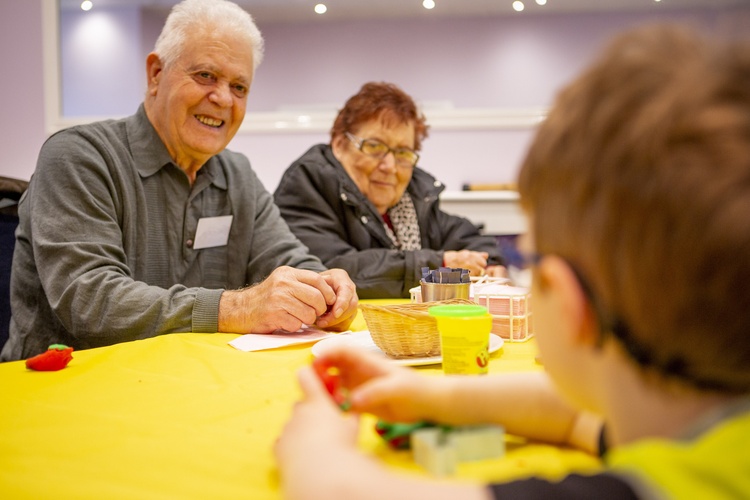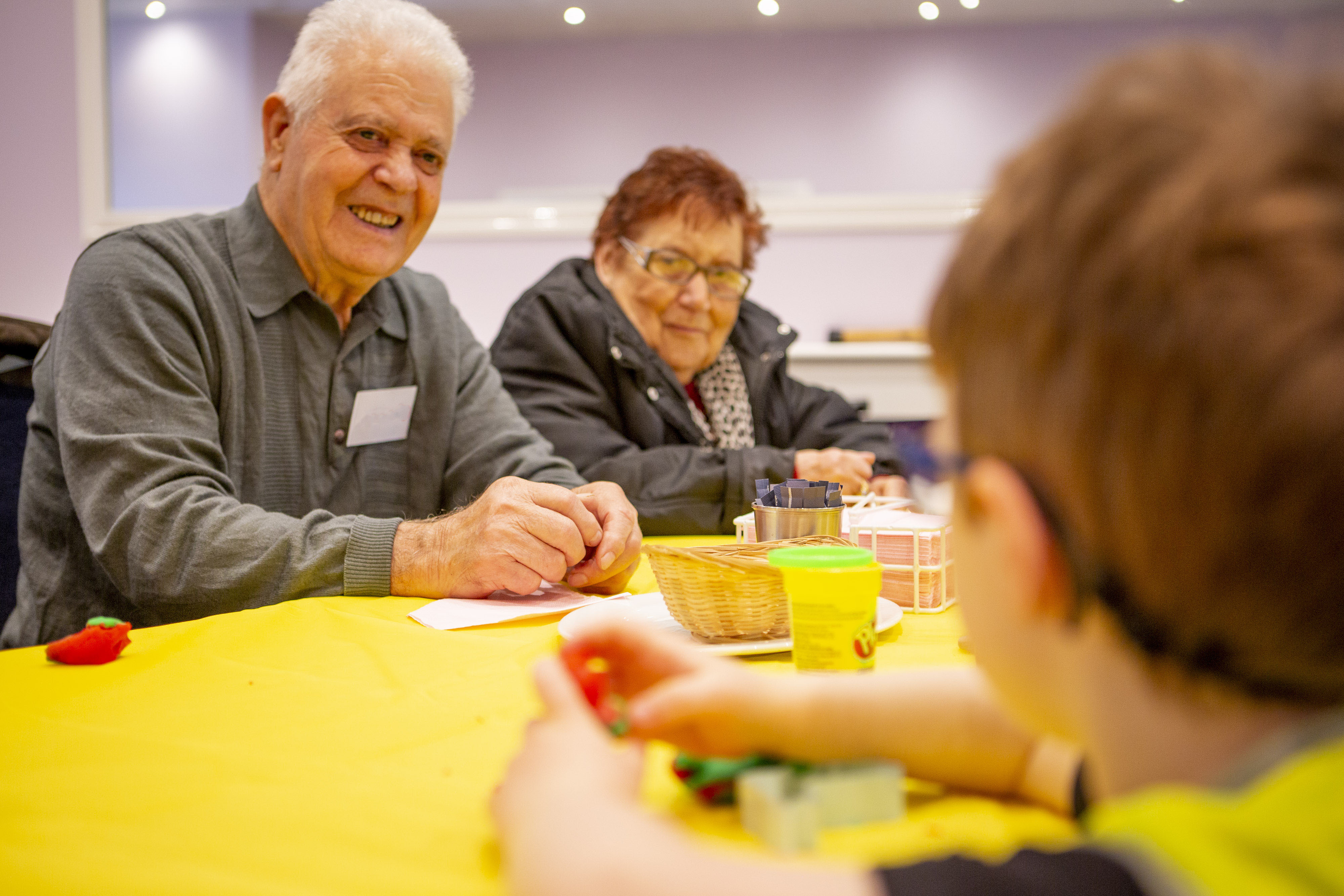On the ABC’s program Old People’s Home for 4 Year Olds, viewers can see the positive effects that regular visits from four-year-olds have on residents of an aged care centre.
After the show was aired, the non-profit organisation Playgroup Australia saw a rapid increase in the creation of intergenerational groups from 40 to 70.
In the following months, CO.AS.IT. Melbourne conducted its own experiment involving the Italian community, with the intention of running similar initiatives in various suburbs next year.
CO.AS.IT.’s Social Support Group, held at the Licodia Eubea Social Club in Coburg, hosted a group of children from the Moreland Community Childcare Centre in Dunstan Reserve for six Thursdays from September to October.
The experiment had overwhelmingly positive results and received excellent feedback from everyone involved.
The aim of these types of programs is to foster meetings and bonds between the elderly and children, in a society where the gap is constantly widening between the two generations.
“By doing activities together, the children and elderly people learn, begin to understand each other and have fun,” director of CO.AS.IT., Marco Fedi, said.
“With their energy and creativity, children can teach their elders to see the world through fresh eyes, while the elderly can share their wisdom, knowledge and traditions with their new friends, and teach them about their heritage and culture.”
The linguistic element can become a powerful tool to transform activities into opportunities to learn Italian.
According to the teachers at the Moreland Community Childcare Centre, the experience was welcomed with enthusiasm by the children.
While they were a little nervous and shy to begin with, they couldn’t wait to see their new friends once they’d gotten to know them.
Children have no preconceptions and are naturally curious about and open towards others, breaking down the walls of their more reserved elders.
The two hours a week together included playing, drawing, dancing and music (strictly Italian), and a snack.
“The participants formed spontaneous bonds and wonderful friendships through simple activities,” the teachers said.
“The program allowed the children to understand the limits of the elderly and interact with them while respecting their space.”
It also taught the youngsters empathy, respect and cooperation.
While English was a second language for some of the children, as with the elderly participants, the language barrier wasn’t a problem as the two groups also used gestures to communicate.
Imogen was invited by her son to attend the last meeting and said it was an absolutely fantastic initiative.
CO.AS.IT. is now considering implementing the project in various suburbs across the city, involving children of different ages.












